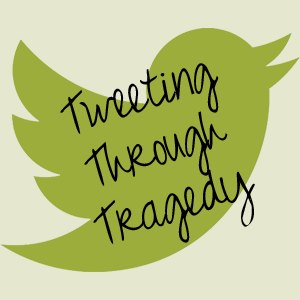 One of the biggest opportunities with social media, in my opinion, is building on a relationship you recently formed in person. For example, you meet two people at a local networking event in the pring and then see them both again at the same networking event in the fall.
One of the biggest opportunities with social media, in my opinion, is building on a relationship you recently formed in person. For example, you meet two people at a local networking event in the pring and then see them both again at the same networking event in the fall.
You remember talking to the first person and maybe even think you remember what they do, but you don’t remember their name. You smile and awkardly tell them it’s nice to see them again and wonder if someone else will walk up so that you can hear this person introduce themselves to that person so you don’t have to admit you can’t remember a thing about them.
The second person tweeted you that very day to tell you it was nice to meet you and then connected with you on LinkedIn within 48 hours. Since then you’ve chatted about some of the articles he’s shared and he’s asked you a few questions on what you do based on your tweets and LinkedIn activity. When you see them again, for only the second time ever in person, you feel like you know them well.
Today I’m sharing three ideas for ways you can get out into your local business community to meet other small business owners and potential clients.
Networking clubs
You can join a networking club. Some require weekly attendance, and some don’t. These types of clubs give you the opportunity to really get to know a group of business owners so you can build a network for referals. Each club will never have more than one person in your industry which means you aren’t competing agaisnt a lot of other people doing exactly the same thing as you do.
While these clubs don’t work well for every business owner, there is a lot of opportunity for business owners who can work together (mortgage brokes, insurance, realtors, home inspectors, etc) to find a a real resource, and it can also be great for someone who works in a less common field (like social media) because you can visit other chapters and promote yourself.
A few examples of these types of groups include BNI, SSN and GR Networking (we’re a member of GR).
Special interest networking groups
There are a lot of groups that cater to smaller interests. You can find women’s groups, tech based groups, community based groups, industry based groups - the options are limitless!
Here are a few ideas to get you started:
Meetup.com has great events just about everywhere. (We often attend Third Tuesday)
Eventbrite has become a go to place to sell event tickets and is therefore a great resource for finding events to attend.
Women’s networking groups. Almost every community has them. We’re a member of a few including the Women in Biz Network and the Women’s Business Network (they’re all called really similar things so good women’s business network and your city and you’ll probably come up with something!)
Your local Chamber of Commerce
Karen and I are both members of two of the Ottawa-area Chambers of Commerce. I’m a member in Orleans and she’s a member in Kanata. By getting to know other business owners you create relationships that open the doors to not only more customers but more publicity and potential partnerships.
Right now we’re nominated for a Business Excellence Awards with the Orleans Chamber because of our involvement (and we’d love for you to take a second to vote for us too - we’re in section 14 :)








